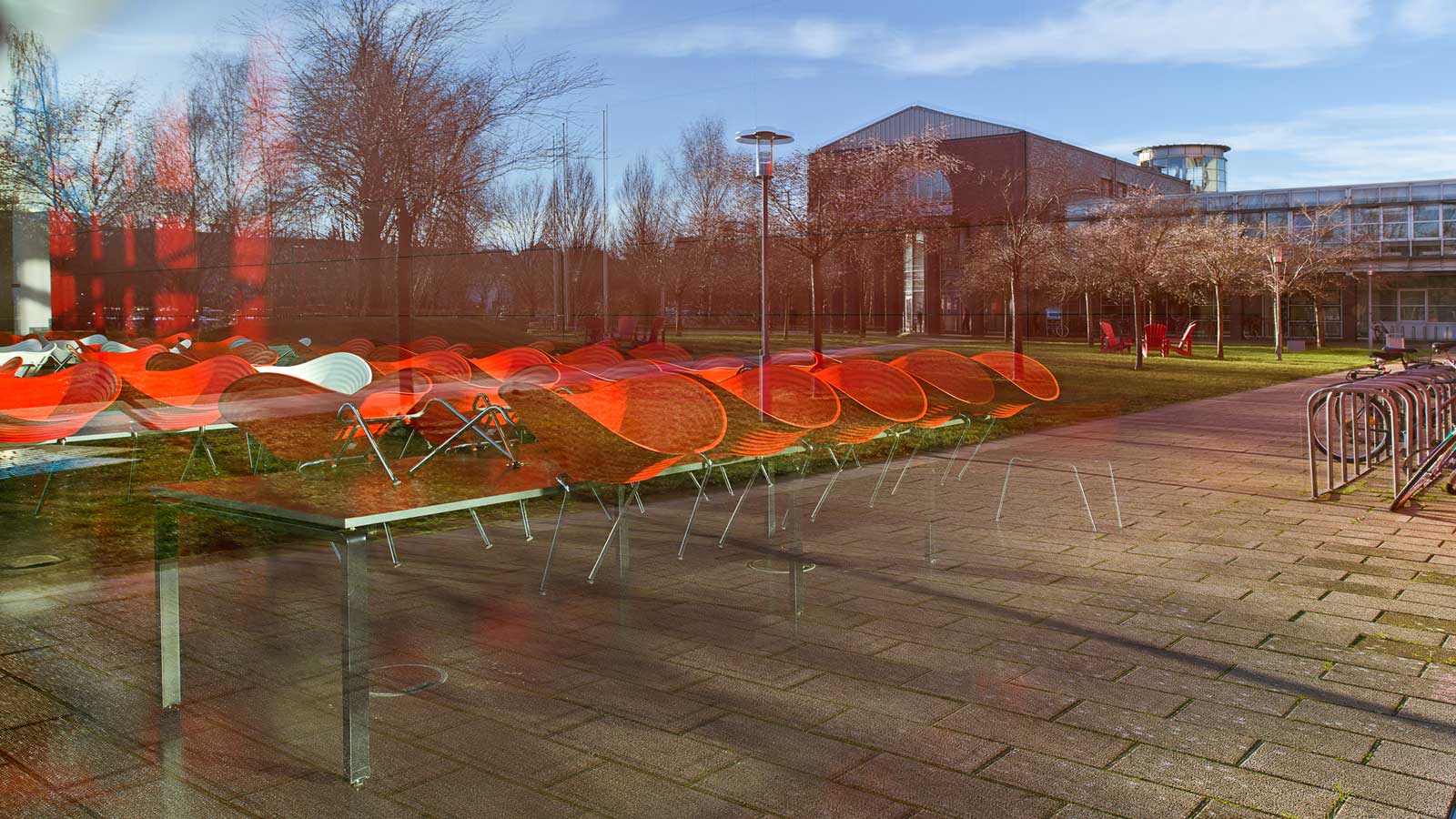
© Felix Clebowski / Universität Bremen
On a High: Help with Addiction
Around 1,200 students contact the Psychological Counselling Centre of the Bremen Student Services Organisation every year. One topic that is often kept a secret is addiction.
Whether it’s alcohol, drugs, shopping, or video games – addiction has many forms. When a former enjoyment turns into an addiction, the Psychological Counselling Centre (PBS) of the Bremen Student Services Organisation can be an initial place of contact. Swantje Wrobel, head of the PBS, does, however, know that addiction is often something that takes place secretively: “The estimated number of unknown cases is extremely high, as it is a topic associated with shame. Additionally, many of those affected do not want to accept their addiction as an illness.” The psychological counselor answered a few of our questions regarding addiction and how those addicted can be helped.
When is something an addiction?
Sometimes drinking one beer too many at a party is not a sign of addiction. Swantje Wrobel explains when things become problematic: “When somebody notices that consumption is impairing their daily life, social contacts, degree, or work - that is when we speak of an addiction.” Alcohol or drug addictions are so-called substance addictions. But behavior such as excessive internet usage or uncontrolled shopping binges are also harmful addictions.
What triggers addiction?
During consultations, Swantje Wrobel often ascertains that addiction is often a symptom of trying to compensate for something or to numb problems: “Most of the time, students come to us with issues such as pressure to perform, stress, or a lack of confidence. When talking to them, we then notice that they try to find relief, try to relax, or run away from reality with substance abuse or harmful behavior.” That is why a psychological therapy to find out the root of the problem is always useful alongside withdrawal.
How do I know if I have an addiction?
You’re slowly being overcome by the feeling that you cannot do without computer games and you’re starting to neglect your social surroundings? “A suspicion can sometimes be a sign,” states the counsellor. According to Swantje Wrobel, a reality check from friends or family in the form of asking them whether they think consumption is taking over can sometimes help. Additionally, the PBS offers self-tests on their website – that is one way of getting a first assessment of the situation.
I suffer from addiction. What can I do?
“The first steps have been taken by recognizing and accepting the problems. The next steps should be to get help and accept help,” suggests the head of the PBS. Self-help groups and consultation services such as the PBS can be initial places of contact for this. A psychological addiction therapy is also sensible for investigating behavioral patterns and changing them.
I think that someone close to me is addicted. How can I help?
Your housemate smokes a lot of marijuana and you think he cannot stop the habit? Swantje Wrobel’s recommendation in such a situation: Speak directly to the affected person about their addiction, offer your help, and do not be put off by excuses. “Even if dependent people do not want to deal with reality, sometimes an outside viewpoint and the persistence of a friend can help.” By the way, relatives of addicted persons can also get help from consultation services and self-help groups, as the situation is also burdensome for them. “We have the term ‘co-dependency’. It describes when relatives of addicted persons not only suffer due to the addiction but also subconsciously promote the addiction through their behavior,” explains the counsellor. The PBS also has an open ear for such cases.
More Information
The PBS offers more information and a number of self-tests for various addictions forms on their website. University of Bremen staff can contact the Addiction Prevention Office.
Psychological Counselling Centre
The Psychological Counselling Center is located in the University of Bremen Central Campus Building underneath the Mensa cafeteria. Appointments can be made by phone from 9 a.m. to 1 p.m. on Mondays, Tuesdays, Thursdays, and Fridays and from 2 p.m. to 4 p.m. on Wednesdays. The centre can be reached by phone (0421 22 01 – 11310) or by email pbs@stw-bremen.de. Consultations can only take place on the phone at the moment. There is also an online counseling service. The Psychological Counselling Centre services are offered free of charge to students of the university and higher education institutions in Bremen and Bremerhaven.